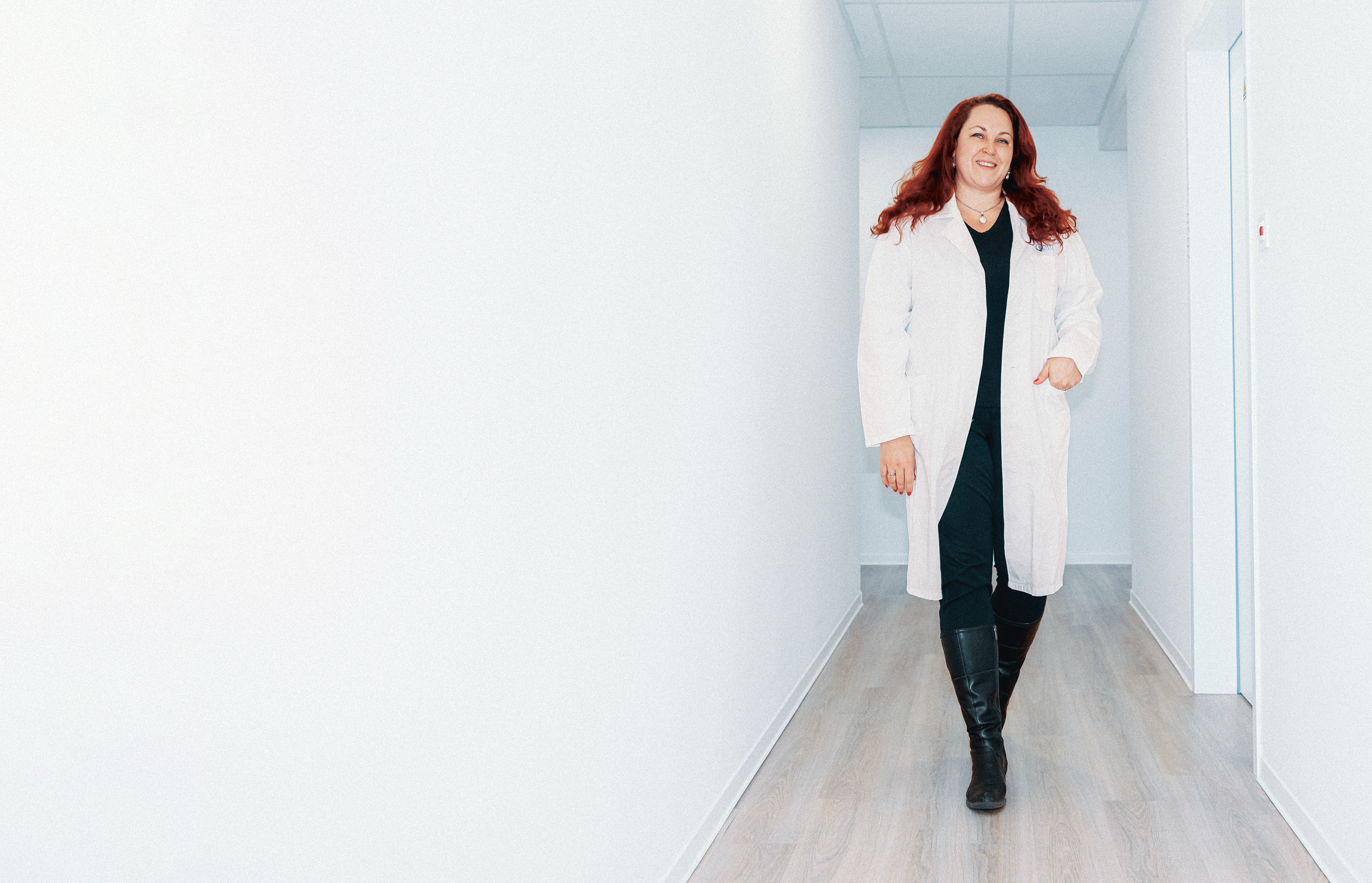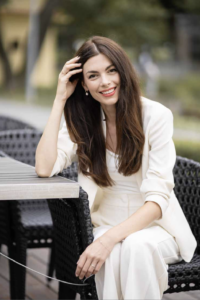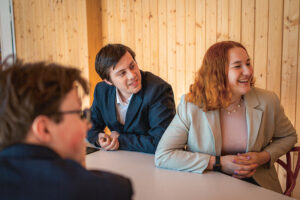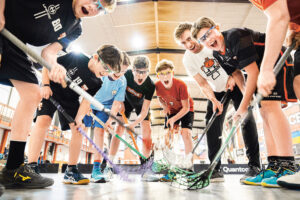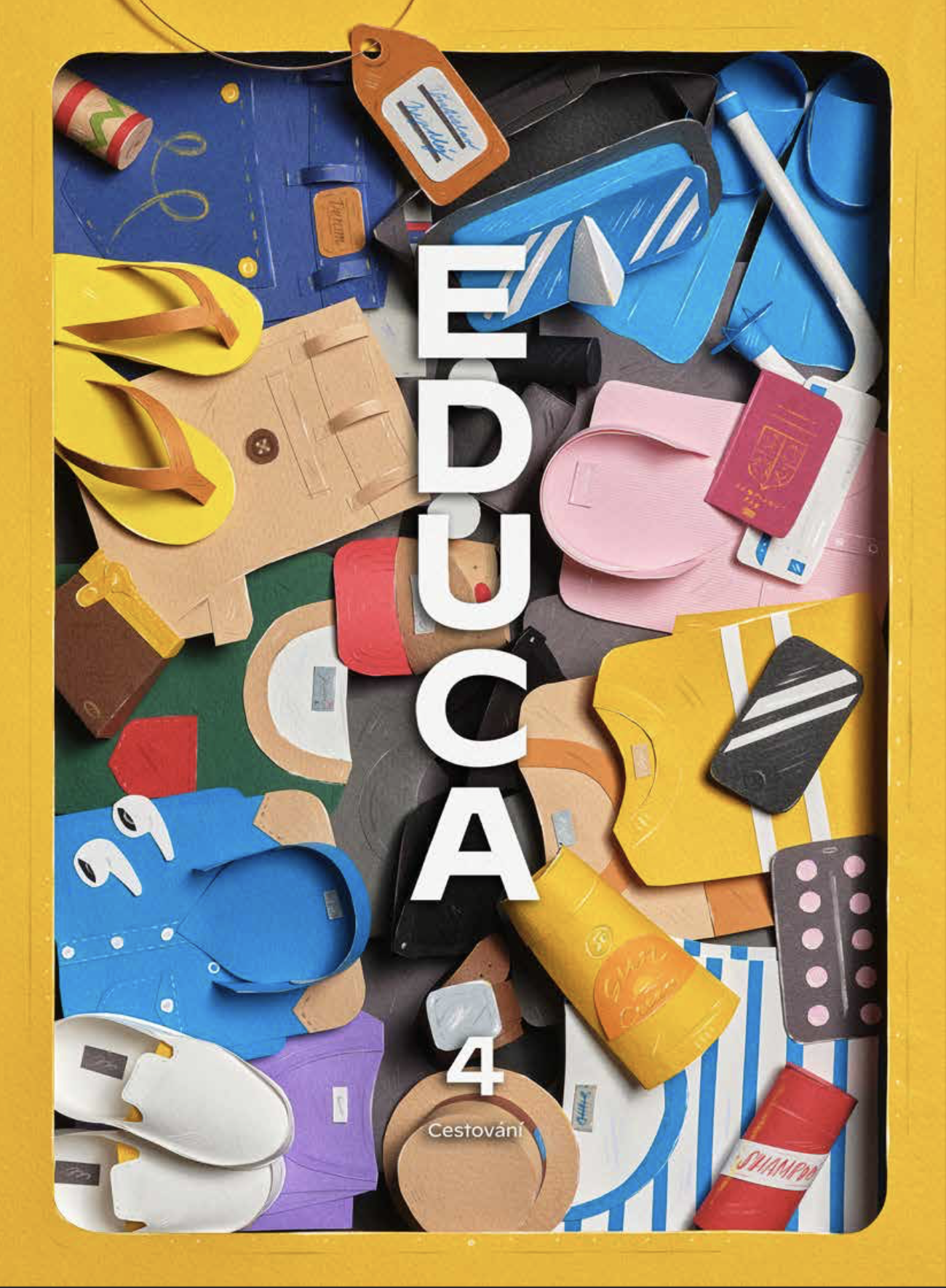I can’t help but ask: how far is humanity from being able to cure cancer?
You mean, are we going to have something that will be administered and you will become immune? Honestly, I don’t know. But amazing achievements have already been made by science. For example, in cervical cancer, where the tumour is caused by viruses, vaccination kills the viruses outright and the vaccinated person gains immunity. This works very well. But also in other areas of cancer treatment, the progress in the last 5 to 7 years has been terrific.
Forgive the ignorance, but that’s not exactly known in practice…
I’d say, yeah, you can tell. Drug development is accelerating incredibly fast. The first attempts to treat cancer are 100 years old. It took fifty years to adopt chemotherapy, and it was still the preferred universal treatment alongside surgery until around 2000. In the last 15 years, immunotherapy has been gaining ground. The pool of knowledge is just enormous. We are in a completely different place to 5–7 years ago. At Sotio, for example, we are now working on drugs that combine chemotherapy with immunotherapy to achieve much more precise targeting of treatment. Even though we are probably still far from the “universal” cure you asked about, I definitely see the development of treatment as positive.
Are you telling me that you never actually experience disappointment in science?
Disappointment doesn’t come from science; it actually comes from us, humans. We often imagine that something will work exactly as we think it does. We check it with experiments and it’s not confirmed. For scientists, this should not be a disappointment. They have to start thinking about what could be different and how it actually works. The greatest discoveries ever made by humans have come from something not working out as expected, e.g. the discovery of antibiotics was triggered by a forgotten culture dish in a thermostat.
So it is also important to know which way not to go….
Yes, but it’s more important to discover which way to go. You have to have an absolutely open mind and be prepared to simply be wrong a lot of the time, too. An open mind is an essential requisite of a scientist.
But how do we overcome all the distractions around us? Disappointments, relationships, information overload, superiors‘ moods… What stimulates you to keep your mind open?
In science, it is important to perceive that things can still be completely different to what you thought, and that your knowledge allows you to think how else it could be. I ask myself what the facts are actually telling me, if I also see something new and challenging behind the negative. It’s like with people: just because we are all thinking about the same thing, it doesn’t mean that we are all thinking about it in the same way and that we will all come to the same conclusion. In science, you can verify conclusions by experimenting, and that’s what keeps us going. Basic science has plenty of room to ask essentially endless questions, to delve deeply into exploring the problem. The applied science we do at Sotio has a slightly different nature of work, clearer questions, pragmatic goals and a few more limits. For example, we know that the drug we are developing potentially works and we need to test whether to administer it twice a day or once a week.
Do you get the same satisfaction from applied science as you did from the basic science you were involved in at the Academy of Sciences?
What I do at Sotio is amazing in that you really can directly influence what then goes into medicine and what can really help someone. In recent years, I have not only had the opportunity to see the development of the drug in the laboratory, but I have also been able to be part of its clinical trials. I saw how it was administered to patients, what indications it worked for. I got huge motivation from that. It tells me that a scientist can really influence the way things work. Even as an individual, you can make even a small dent, but it makes a difference in your life.
So that’s the satisfaction you find?
As a scientist, you never get bad results. In experimental work, you’re trying to get to the bottom of things. So you always get some results. And you’re trying to understand why the results are the way they are, I’m sure. If I can confirm that something I thought would be effective actually works, it’s absolute euphoria. At the same time, however, many new questions usually arise. So the work is not monotonous at all, not like the stereotype. You never know where it’s going to take you. It’s a wonderful, constant change.
How do you not lose direction and focus in the middle of such change?
Don’t come to me for advice! That’s quite an individual thing, I think. For me, it is, and in fact has always been since high school, a desire to learn how things actually work. I think I took after my dad in my passion. My dad was an entomologist, and travelled and lectured a lot. And I dreamed of discovering the world through biology like he did. Such a naive girl’s motivation. But it all started there somewhere. In high school, I found it fascinating to read the history of immunology, the history of the discovery of vaccines. The motivation that one can really help someone, even if one is absorbed in a dimension a bit different from basic research, actually came much later. It led me, so to speak, from the Academy of Sciences to Sotio.
I have heard it said several times with admiration that Sotio is a kind of revelation in the Czech Basin. Is that right?
Sotio’s success is the very fact that it is by far the largest professionally run biotechnology company in the Czech Republic, still growing rapidly and expanding its activities abroad. Previously, there was basically no biotechnology in the Czech Republic. There was not much to build on: in many areas we lacked experts or the necessary international experience. Thanks to the funding we have from the PPF Group, we have been able to launch a number of projects and build a strong international team consisting of colleagues from 17 different countries. And thanks to its global ambitions, Sotio has raised a strong generation of Czech professionals who can develop biologics. I have talents 10 or 15 years younger in my team. In terms of publications in renowned international scientific journals, we have a strong team around Jitka Fučíková. We cooperate with a number of other companies and universities. In France and the UK, they have incorporated the substances we have developed into their scientific projects. We have our own clinical trials with patients underway. These are the three areas they look at abroad before they even consider you. So: really cool.
When you look at the motivation of today’s high school students, what would you add to their education?
I once gave a lecture in high school about what science is and how it helps to cure cancer. And I saw the results with terribly enthusiastic students who until then had actually lacked a practical view of why biology and chemistry were being crammed into them. They didn’t know what good it could ever do them. For example, if schools let different experts tell students about what is possible to do with what subject in practice, it would do an awful lot to motivate them to study. How could they have a.ny idea in high school what it is to be a scientist unless someone in the field tells them? Many would very much enjoy starting with science.
Irena Adkins, PhD.
graduated from the Faculty of Science at Charles University in Prague. She defended her doctoral thesis in immunology at Eberhard Karls University in Tuebingen, Germany. She has worked in the field of infectious immunology at the Czech Academy of Sciences in Prague and also at Trinity College in Dublin, Ireland and EPFL in Lausanne, Switzerland. Since 2012, she has been working as a Senior Pharmacology Scientist at SOTIO, an international biotechnology company in Prague, and is involved in innovative treatment for cancer patients. She is a lecturer at the Second Faculty of Medicine, Charles University in Prague.
